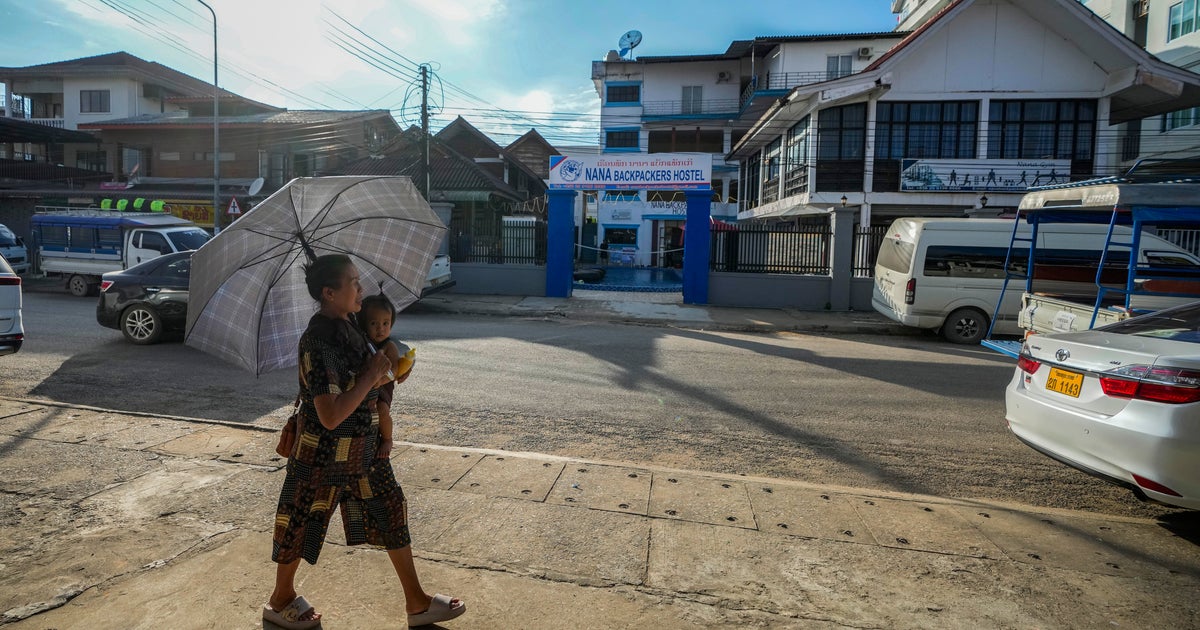U.S., Cuban officials to discuss "health attacks"
Cuban and U.S. officials will meet in Washington, D.C., on Tuesday to discuss the mysterious attacks that affected at least 21 Americans who suffered a range of injuries while working at the U.S. embassy in Cuba, CBS News has learned.
A statement to CBS News from a U.S. State Department spokesperson for the Bureau of Western Hemisphere Affairs said that Tuesday's meeting will address the attacks that have triggered significant health problems for embassy staff, along with other U.S. national security interests.
"We will raise our concerns over the incidents affecting the health of U.S. diplomatic personnel in Havana and the status of the investigation," the statement read. "The meeting also provides an opportunity to advance other U.S. national security interests regarding Cuba."
Embassy workers have complained of nausea, headaches, exhaustion and trouble concentrating and remembering words, and some have been diagnosed with mild traumatic brain injury and permanent hearing loss, according to the American Foreign Service Association and medical records examined by CBS News.
CBS News reported earlier today that the top official in charge of security at the embassy was among those injured. CBS News is not naming the Regional Security Officer, who was scheduled to undergo medical treatment, according to a source. When contacted by CBS News, the individual declined to comment.
Meanwhile, the latest development illustrates how far-reaching the attacks have been, affecting one of the most senior leaders of the U.S. embassy that only reopened in 2015. CBS News Radio broke the story last month.
Just last week, five Republican senators on the Intelligence Committee, including Chairman Richard Burr, sent a letter to Secretary of State Rex Tillerson calling on him to expel all accredited Cuban diplomats in the U.S. and consider closing the embassy in Havana.
"Cuba's neglect of its duty to protect our diplomats and their families cannot go unchallenged," the senators wrote.
Tillerson responded on CBS News' "Face the Nation" Sunday.
"We have it under evaluation," Tillerson said. "It's a very serious issue with respect to the harm that certain individuals have suffered. We've brought some of those people home. It's under review."
Although the U.S. has not publicly blamed Cuba for the attacks, on May 23, the State Department asked two Cuban embassy officials in Washington to leave the country. A source identified them as Joel Lago Oliva and Frank Silva Hernandez. State Department documents list the two as First Secretaries, but the source says they are intelligence officials. They departed the U.S. a week later, on May 30.
Cuba has denied any involvement.
Cuba's President Raúl Castro suggested to then-Ambassador Jeffry DeLaurentis in February that the attacks could have been caused by a "rogue element," according to a source with knowledge of the conversation.
But, "nothing happens in that island without a Castro giving it the OK," according to the source.
Raúl Castro's only son, 52-year-old Col. Alejando Castro Espín, is a high-ranking official in Cuba's intelligence apparatus.
Some analysts and sources close the U.S. investigation of the attacks have pointed to the possibility that a third country is behind the attacks, perhaps a U.S. adversary like Iran, North Korea or Russia.
Russian Foreign Ministry Spokesperson Maria Zakharova called insinuations about Russia's involvement "absurd" at a press briefing in Moscow August 31, and said "this does not help the normalization of the bilateral relations" between the U.S. and Russia.
"We are ready to help the Cuban side investigate the matter and determine the facts," she said.
The State Department refused to publicly comment on whether it would welcome Russia's involvement in the investigation into the attacks.
The attacks began in late 2016, and the latest one was reported Aug. 21.
Steve Dorsey in Washington, Len Tepper in New York, Portia Siegelbaum in Havana and Svetlana Berdnikova in Moscow contributed to this report.




